Supplements for Those With Gluten Intolerance
Being gluten-free may mean you need extra help getting some critical nutrients

Virojt Changyencham / Getty Images
Medically reviewed by Robert Burakoff, MD, MPH
If you follow a gluten-free diet because you have celiac disease or gluten intolerance, there's a good chance that you may not be getting enough key vitamins and nutrients from the foods you're able to eat. That's why supplements for those with gluten intolerance or celiac can be so important.
Celiac disease can cause malabsorption issues that interfere with your body's ability to get nutrients and put them to use. But whether you go without gluten because of celiac or not, what you eat can contribute to nutrient deficiencies. This is partly because gluten-free processed foods often aren't fortified with extra nutrients.
Vitamins and minerals you may need to get more of include:
Vitamin B6
Folate
Vitamin D
Calcium
Iron
Vitamin B12
Thiamin
Riboflavin
Niacin
Taking these vitamin and mineral supplements can help ensure you get enough of these nutrients to maintain good health despite your gluten intolerance or celiac disease.
This article reviews the nutrients you may be lacking and what foods contain them. When diet isn't enough to raise your levels, supplementation may be in order.
Mega-doses of many vitamins can be toxic. Before you begin using supplements, check with your healthcare provider. You may need blood tests to determine your nutrient levels and needs.
Vitamin B6 for Preventing Infections
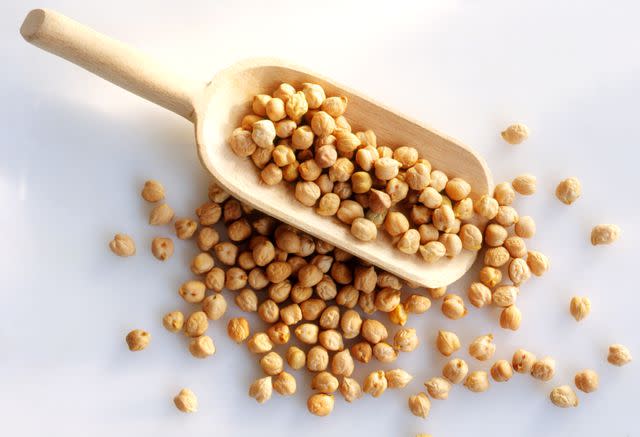
Vitamin B6 is one of the best supplements for celiac disease. You need vitamin B6 to fight off infections, maintain normal nerve function, carry oxygen throughout your body, and keep your blood sugar within normal limits. Unfortunately, studies have shown that many people with celiac disease who follow a gluten-free diet are low in vitamin B6.
There are plenty of healthy foods that can give you a boost in this important nutrient. Start with chickpeas (also known as garbanzo beans)—a cup will give you more than half of the vitamin B6 you need in a day. You can mix chickpeas into salads or eat them in the form of hummus (with gluten-free crackers, of course).
You also can get significant amounts of B6 from tuna, salmon, chicken, and turkey. Even one medium-sized banana has 20% of the vitamin B6 you need each day.
Related:The Best B-Complex Supplements
Folate Helps Make New Cells
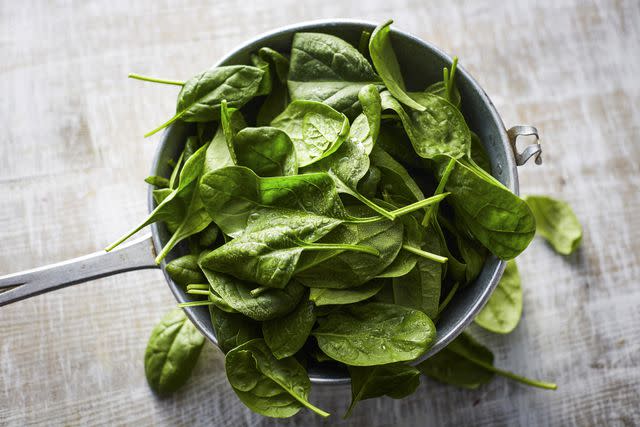
Folate, also known as folic acid, is another B vitamin. You may be familiar with folate's role in preventing birth defects (it prevents malformations in the fetal brain and spine), but everyone needs sufficient amounts of it to help their bodies make new cells.
Lots of conventional gluten-containing foods are fortified with extra folate, so if you're eating gluten-free, you'll need to take special care to get enough—you won't be getting anywhere near as much as most people. Folate is an important vitamin supplement for gluten intolerance and celiac disease.
Think green to boost your folate levels: Spinach, asparagus and brussels sprouts all are high in the nutrient, as are green peas and broccoli. If you eat 10 spears of asparagus or two-thirds of a cup of boiled spinach, you'll be more than halfway to your daily folate goal.
Peanuts also have folate, although you'd need to eat 10 ounces of peanuts each day to get enough of the vitamin. About a half-cup of black-eyed peas will provide a quarter of the folate you need each day.
Related:Health Benefits of Folate
Vitamin D as the Sunshine Vitamin
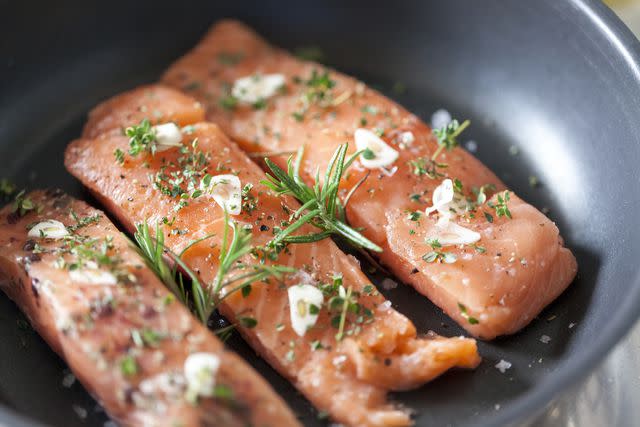
Known as "the sunshine vitamin" because your skin produces it in response to sunlight, vitamin D also can be found in fortified dairy and cereal products. If you are gluten-free (and especially dairy-free, too), you may not get enough vitamin D.
Vitamin D is an important vitamin supplement for celiac disease. In fact, studies have shown that people with celiac disease are especially prone to vitamin D deficiencies.
Unfortunately, few foods naturally contain much vitamin D—exceptions include cold-water fish like swordfish and sockeye salmon, which contain substantial amounts. An egg yolk contains about 10% of the vitamin D you need each day.
If you consume dairy products, you can look for products fortified with vitamin D (that includes most milk and yogurt, but be sure to purchase only gluten-free yogurt). Some orange juice brands are also fortified with vitamin D (again, check to make sure your juice is gluten-free).
Related:What Is Vitamin D Deficiency?
Calcium Boosts Your Bones
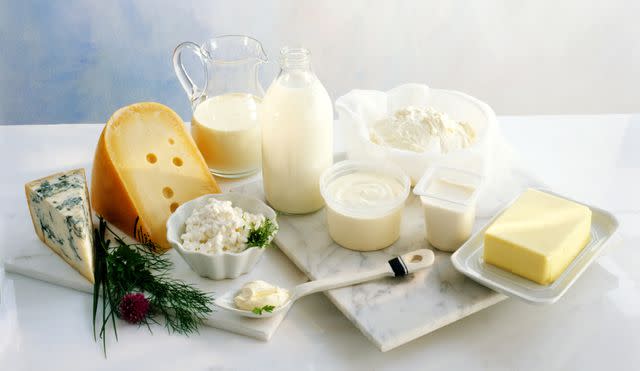
Like vitamin D, calcium is found in dairy products—and that doesn't do you a whole lot of good if you're avoiding dairy due to lactose intolerance or because of additional food sensitivities. As with vitamin D, it's no wonder that studies show people with celiac disease don't get the recommended amount of calcium in their diets.
However, that may not mean the gluten-free diet leads to deficiencies in calcium, and in fact, the few studies that have been conducted haven't shown calcium deficiencies in people following the gluten-free diet.
There are multiple options for milk products with ample calcium if you eat dairy. But if you avoid dairy along with gluten, you still can find calcium—just look for tofu or canned fish with bones. Some orange juice brands also contain added calcium.
Related:The Best Calcium Supplements
Iron Helps Carry Oxygen
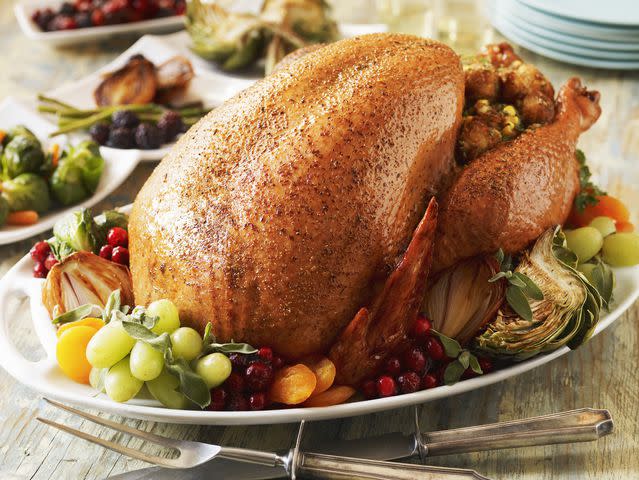
Anemia, caused by iron deficiency, is a common symptom of celiac disease, and in fact, a study published in 2015 shows people who are anemic at diagnosis may have worse damage to their small intestine than people whose primary celiac symptom was diarrhea.
Therefore, people with celiac disease need to be extra careful to get enough iron, either through their diets or through supplements.
People who don't have celiac but who are following the gluten-free diet also need to be careful, since many people following a conventional gluten-filled diet get enough iron through fortified cereals and other products.
Iron is easy to get if you eat meat: Beef and turkey contain plenty. Oysters also are high in iron, and tuna contains some iron.
If you follow a gluten-free vegetarian diet, you can obtain iron from soybeans and legumes—one cup of soybeans has half the iron you need in a day, while one cup of lentils has 37% of your recommended daily intake.
Just make sure to find safe sources of gluten-free soy and gluten-free beans, as these can be quite cross-contaminated with gluten.
Related:The Best Iron Supplements
Vitamin B12 to Fight Fatigue
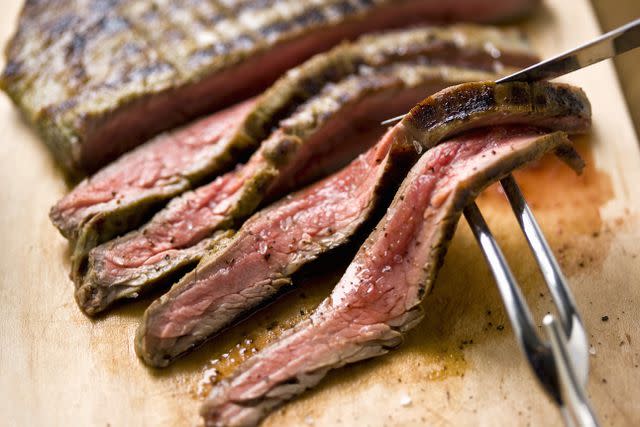
Vitamin B12 helps maintain your nerve and blood cells, and those who are particularly deficient in B12 can find themselves fighting constant fatigue. Research has shown that people with celiac disease don't get enough vitamin B12 in their diets.
Part of the reason for that low intake may be that most conventional breakfast cereals are fortified with 100% of your daily vitamin B12 requirements. People who avoid gluten can't eat many of those cereals. (There are many gluten-free cereals on the market, though, some of which are fortified with vitamins and minerals.)
Meat, fish, and dairy products tend to be the best sources of vitamin B12, which is why vegetarians and vegans often are more deficient. A meal-sized portion (4 ounces or more) of salmon or trout will provide 100% of your recommended daily intake, while 6 ounces of beef will give you half of what you need.
A cup of milk or an ounce of hard cheese will provide about 15% of your vitamin B12 requirements.
Related:Effect of Vitamin B12 Deficiency
Thiamin, Riboflavin, and Niacin for Energy
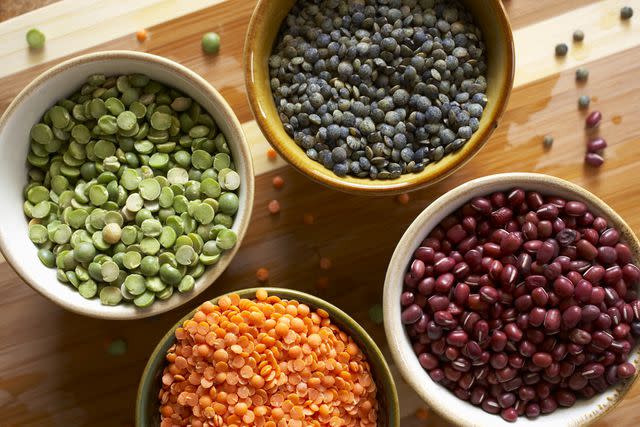
Thiamin, riboflavin, and niacin are all B vitamins, and all play a role in converting the food you eat into energy. As with vitamin B12, studies have shown that people following a gluten-free diet don't get enough of these vitamins. although medical testing doesn't indicate they're necessarily deficient.
All three typically are added to conventional fortified gluten-based cereals and breads, which explains why people might get less of them on the gluten-free diet.
Beans tend to be a good source of thiamin—half a cup of green peas or lima beans will give you about 50% of what you need each day. Acorn squash and potatoes also contain significant thiamin.
For riboflavin, you can turn to dairy products: A glass of milk plus a cup of yogurt every day would cover you. Meat also is a good source of riboflavin. If you don't eat meat or dairy, look to almonds and soy nuts for your riboflavin (assuming you can tolerate soy).
Finally, for niacin, all types of meat, poultry, fish, and dairy are high in the nutrient. If you follow a vegetarian or vegan diet, look to portobello mushrooms, pumpkin or squash seeds, tempeh, peanuts, or beans to get the niacin you need each day.
A Word From Verywell
Focusing on vitamin-rich foods may not eliminate your need to take supplements—you'll absolutely need to talk with your healthcare provider about your specific health needs and whether or not they recommend you supplement with specific nutrients or with a more comprehensive multi-vitamin product.
Not everyone needs to take supplements, but people with celiac disease may need them more often than most since celiac affects your ability to absorb nutrients.
However, eating nutrient-rich foods—especially those rich in the specific nutrients you may be lacking—may help you correct deficiencies and aid your general health.
Frequently Asked Questions
What nutrients are people with celiac disease deficient in?
People with celiac disease are at greater risk of nutrient deficiencies due to poor absorption. Key ones that should be checked: calcium, iron, vitamin D, and the B-complex vitamins B6, B12, folate, niacin, riboflavin, and thiamin.
How can I absorb nutrients better with celiac disease?
Following a strict gluten-free diet is the only way to repair the damage caused by celiac. Once that happens, your absorption of nutrients will improve. In the meantime, talk to your healthcare provider about supplements.
Do multivitamins contain gluten?
Sometimes. While most manufacturers try to avoid using ingredients that are common allergens or irritants, not all supplements are gluten-free. Be sure to read labels carefully.
